Is my primary school age child autistic?
Your child's brain is unique to them and they will have unique skills, abilities, and needs.
An autistic child has a different way of understanding and relating to other people and the world around them. Autism is a lifelong condition. It affects different children in different ways.
Remember that these differences aren’t always negative. Your autistic child might need support to thrive but thrive they can!
Spotting the signs
Signs and symptoms must be present across different settings. For example, at home, school, clubs and with other family members.
Autistic children have a combination of different traits which means that no two children are the same. These can look different in girls and boys.
If you have an autistic child then you may notice a combination of some or all of the following:
- Speech
- Very limited words
- A toneless, flat voice
- Repetitive speech
- Communication
-
- Talk 'at' others instead of a 2 way conversation
- Responses that seem rude or inappropriate
- Reduced response to others, for example to other people's facial expressions or feelings or to their name being called
- Difficulty understanding other people's intentions, for example they may take things literally
- Misunderstand other people's meaning, sarcasm or metaphors
- Unusually negative response to the requests of others
- Socialising
-
- Reduced interaction with others
- Poor awareness of personal space
- Intolerant of people entering their personal space
- Not aware of socially expected behaviour
- Struggle to share
- Don't enjoy situations that most children like, for example birthday parties
- Poor eye contact with others
- Reduced imaginative play or creativity
- Make comments without awareness of social norms
- Interests
- Overly focused on a particular interest
- Limited or unusual interests
- Behaviour
- Rigid and repetitive behaviours, for example hand flapping, rocking, spinning, or finger flicking
- Play repetitively with objects rather than people
- Rigid expectation that other children should follow the rules
- Excessive insistence on following their own agenda
- Extremes of emotions that seem excessive for the situation
- Strong preference for familiar routines
- Dislike of change
- Over or under reaction to sensory stimuli, for example sounds, smells, tastes, and textures.
- They may have extreme food preferences.
Spotting your child's strengths
It's important to look for your child's strengths. These may include:
- An ability to focus intently on areas of interest
- An attention to detail
- Creative thinking
- Ability to recognise patterns
- Deep thinking, kind and empathetic. They may struggle to express their emotions but many autistic children feel things very deeply
- Effective problem solver. Autistic children need to solve problems on a daily basis, for example, 'how can I focus with all that noise?'
Masking
This is when an autistic person hides a part of themself or their traits to fit in better. They don't always do this intentionally. Your child may 'mask' as a way of coping.
Some children suppress certain behaviours they find soothing or copy the behaviour of friends so that they fit in. For example, they may be able to avoid stimming around their friends.
Masking can be exhausting for your child as they are constantly trying to adjust their behaviour. It may make them feel anxious or affect their mood.
Girls often receive an autism diagnosis later than boys. One reason for this may be that women and girls are often better at masking or camouflaging their difficulties.
Diagnosis
- Start by making an appointment with your child's teacher or the school's Special Educational Needs Coordinator (SENCO) to discuss your concerns. Even if your child’s difficulties are not obvious at school, this is still the best place to seek early support. Your child’s school has a responsibility to meet their learning needs.
- You can also speak to your School Nurse (0-19 service) or GP.
- Seek support according to your child's needs. For example, Speech and Language Therapy for speech delay.
If you're not very worried about your child then watching and waiting for a bit longer may be suggested. During this time you, your family and school can monitor your child's behaviour and development.
Waiting times for an autsim assessment can be long. While you are on the waiting list, you can still get support for your child.
Most services will work with your child and support you whether or not they have a diagnosis.
Autism assessment in your local area
Each area is different. Your child's school or GP can refer your child for an assessment.
- Leeds CAMHS provides assessments to school age children for autism and ADHD
- Bradford and Craven. Children under 7 years old will be assessed by a paediatrician in the Child Development Centre. Children aged 7 to 18 are assessed by Bradford District Care Foundation Trust CAMHS service.
-
Social Communication, Interaction and Learning team (SCIL) offers a range of support to schools in Bradford. Individual support can be accessed for any child with communication and interaction needs. A diagnosis of autism is not necessary.
- Wakefield First fill out the social communication assessment referral form
- Kirklees
- Calderdale
Speak to your GP urgently if your child's development is going backwards and they are losing language or skills.
What may happen at an autism assessment?
The video below shows what may happen at an autism assessment.
Top tips to help your child
Communication
- Use your child’s name to get their attention before you speak.
- Speak clearly.
- Use short, simple sentences.
- Be clear and specific about what you mean. For example “pick up your Lego and put it in the box” rather than “tidy up.”
- Cut out unnecessary language such as “do you think you could...”
- Use simple, direct language. You may confuse or worry your child if you use sarcasm, humour, irony or metaphors.
- Make sure what you say matches your tone of voice, facial expressions and body language.
- At times of anxiety or distress use a calm voice, calm body language and make less eye contact.
- Tell your child what you want them to do rather than what not to do. For example “Put your coat on” rather than “Stop wasting time”
- Give instructions in the correct order and break things down into chunks. Only give as much information as your child can cope with.
- Avoid open choices like “What do you want for breakfast?” You may find it better to give a couple of options such as “Would you like cereal or toast?”
- Use pictures and drawings as well as words if your child finds this helpful.
- Give them time to process information. Speak. Wait 6 seconds and if needed repeat.
Social skills
- Praise and reward your child when things go well.
- Help them identify emotions.
Routines
- Diaries, timetables and notebooks can be really helpful. Put it where it can be easily seen. Write or draw what your child can expect to happen that day and the order of events such as school, homework and bed time. Refer to it frequently.
- Have a daily routine to provide structure to the day. Make sure you have a set morning routine, meal routine, bedtime routine. This provides security and reduces anxiety.
- If plans change let your child know in advance. Discuss what will happen instead and change it on their calendar.
- Starting and finishing activities can cause difficulties. Think of ways to clearly indicate the beginning or end of something. Consider using timers to count down time to something finishing, so the child is prepared.
- Waiting and unstructured time can be difficult for autistic children. When possible, plan in advance before going out for example, take a book to a doctor’s appointment.
The Environment and activities
- Be aware of how much there is going on. Some children can find sounds, smells or lights overwhelming.
- Reduce background noise for example turn off the TV if you are not watching it.
- Offer a safe space or time out to calm down
- Physical activity can be really useful in managing anxiety for all children.
Further reading and resources
![]() NICE guidlines on When to suspect autism spectrum disorder in a primary school child?
NICE guidlines on When to suspect autism spectrum disorder in a primary school child?
![]() National Autistic Society advice on: Eating, Toileting, Stimming, Meltdowns and Sleep
National Autistic Society advice on: Eating, Toileting, Stimming, Meltdowns and Sleep
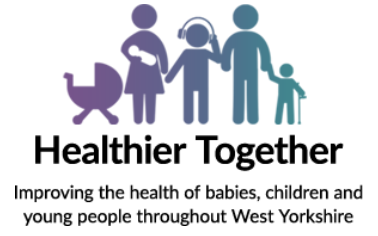 Healthier Together advice on: Toilet Training, Bed Wetting and Fussy Eating
Healthier Together advice on: Toilet Training, Bed Wetting and Fussy Eating
Get Help and Support
Visit our Support for neurodivergent children and their families page for a full list of support available.
Books
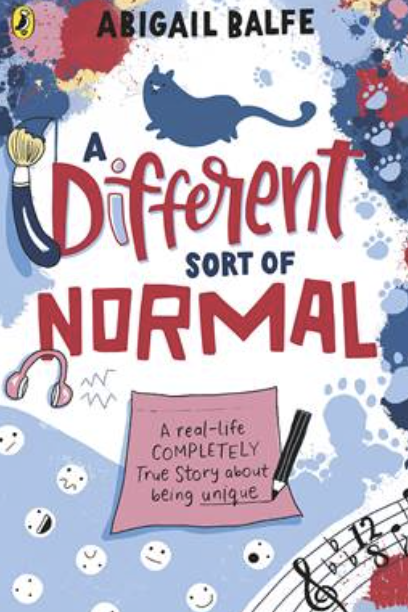 A Different Sort of Normal by Abigail Balfe
A Different Sort of Normal by Abigail Balfe
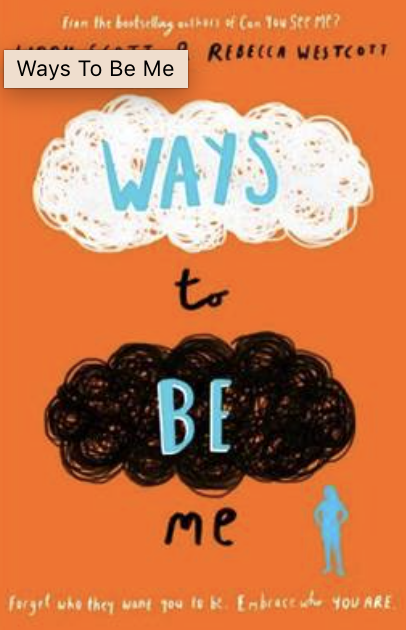 Ways to Be Me by Libby Scott and Can You See Me by Libby Scott
Ways to Be Me by Libby Scott and Can You See Me by Libby Scott
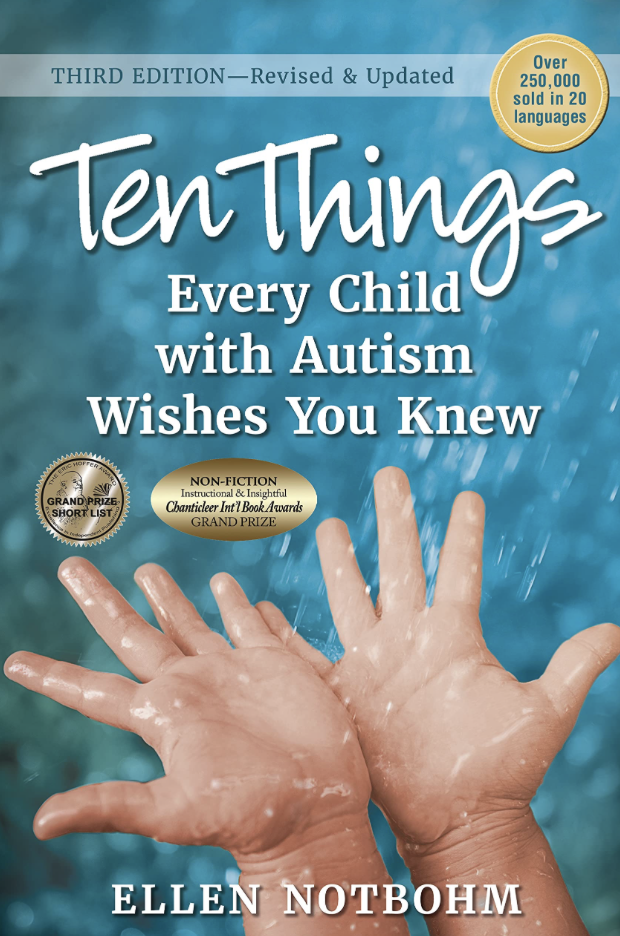 Ten Things Every Child with Autism Wishes You Knew by Ellen Notbohm
Ten Things Every Child with Autism Wishes You Knew by Ellen Notbohm
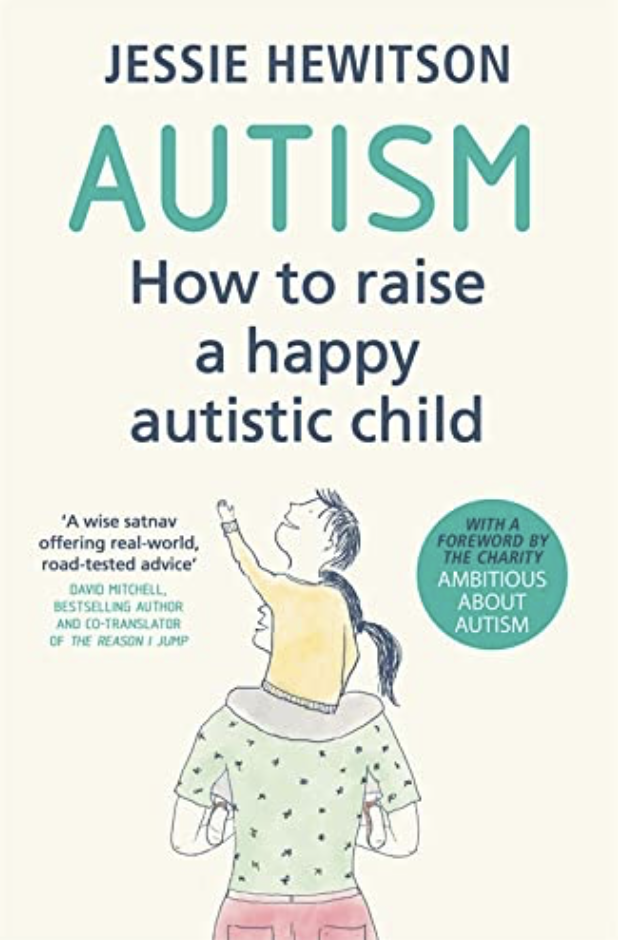 Autism: How to raise a happy autistic childy by Jessie Hewitson
Autism: How to raise a happy autistic childy by Jessie Hewitson



